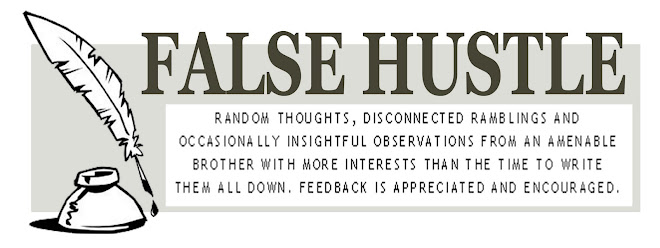 In recent years, it became popular to vilify NFL union head Gene Upshaw for all the things people said that he hadn't done and wouldn't do.
In recent years, it became popular to vilify NFL union head Gene Upshaw for all the things people said that he hadn't done and wouldn't do.What's often left unsaid are all the things Upshaw actually did. Upshaw, who died last night of pancreatic cancer, left behind a legacy of accomplishment that defies his very modest south Texas roots.
A few years ago, I tracked down Upshaw on his cell phone for a story about his alma mater, Texas A&M-Kingsville, and its improbable success at sending players into the NFL despite being about as far from the spotlight as a football program can be. Upshaw was the prototype.
It would be best if I just refer to the passage from that story here:
Upshaw's path to the NFL was anything but traditional.
During a freshman orientation in 1963, Upshaw stopped to watch football practice at Javelina Stadium. He hadn't planned on playing football in college until coach Gil Steinke, who led Texas A&I to six NAIA titles in 23 years before retiring in 1976, invited him to come out for the team.
Upshaw quickly earned a scholarship, and at the end of his four years with the Javelinas he had transformed himself into the Oakland Raiders' first-round pick.
The transformation didn't stop there. After a 15-year Hall of Fame career with the Raiders, Upshaw became executive director of the players' association and, most notably, ushered in NFL free agency and created a new stream of wealth and freedom for players where none had previously existed.
Despite that, a vocal group of retired players led by Mike Ditka started rallying against Upshaw because of the NFL's somewhat arcane disability claim-system (as if all industries don't have that in common). Of all people, Bryant Gumbel called Upshaw a "personal pet" of the commissioner on national TV. Problem was, as ESPN's TMQ astutely noted, Upshaw had actually created a system that was " fabulous not only for current NFL players but for the very retirees now complaining so bitterly."
For more on the topic, Sports Illustrated's Gary Smith sketched a remarkably complex and compelling portrait of Upshaw and his very public battle earlier this year. Needless to say, as a former Raider, Upshaw had little fear of being the bad guy.
In the end, Upshaw was still battling the perception of being a lapdog. I wonder how much this ugly showdown contributed to his swift decline in health - at 63, he was in remarkable shape and worked out religiously. He deserved a better epilogue, I think.
I'll never forget his final words to me during that conversation, when I'd interrupted his preparation for a family vacation to Mexico. We chatted amiably for about 30 minutes, as if we'd known each other for far longer. At the end of the conversation, I thanked him again for his time and apologized for holding him up. It's ok, Upshaw said, "it was my pleasure."
No, Gene. It was mine.
.jpg)
No comments:
Post a Comment